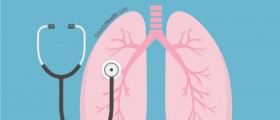
Both children and adults may suffer from asthma. Air passages in people suffering from asthma respond abnormally to some asthmatic triggers and become inflamed and swollen. Large and small tubules of the airways are found to be most commonly affected by asthma. When the irritant enters these passages, the person experiences constriction of the airways and can’t breathe properly, due to the cutoff of the air supply.
What Causes Asthma in Adults?
Adult onset asthma is less likely form of this disease than childhood asthma. Every person older than 20 years of age, suffering from narrowing of the airways is diagnosed to have adult asthma.
Some of the adults diagnosed with asthma may have this condition all their life, but never had any symptoms. In some other cases, asthma was misdiagnosed in the childhood age and doctors mistaken symptoms of asthma for some other disease. However, people may also become sensitive to some allergens and they became asthmatic triggers, leading to development of asthma in adulthood. Many adult people diagnosed with asthma have been found out to have some long-term illness or experience hormonal changes. Thus, many doctors recognize these as risk factors for development of asthma. Flu and viral infections, pet allergies and some occupational hazards may also provoke development of adult onset asthma.
Asthma and Women
Women may have some asthma symptoms after childbirth or during pregnancy. Also, women treated with estrogen for 10 years or more and those who are near menopause may also experience similar symptoms.
Symptoms of Adult Onset Asthma
Asthma may be mild or serious problem for adult people, depending on the severity of the disease. First symptoms may appear after just several hours or days of exposure to some of the triggers.
Patients diagnosed with asthma are usually noticed to wheeze while exhaling and breathing rapidly. It is not uncommon to see the activity of the respiratory muscles if the condition is serious. Shortness of breath may pass unnoticed, especially in older women (50 to 60 years of age) but this symptom should not be neglected.
When to See a Doctor
Asthma may also be presented with coughing and tightness in the chest. People usually come to the doctor complaining about the cough, since this is the symptom they can’t stand and affects their normal sleep. Others may visit the doctor if they happen to experience some unexplained chest problems. This is a good idea, for tightness in the chest is found to often precede severe asthma attacks.

















Your thoughts on this
Loading...